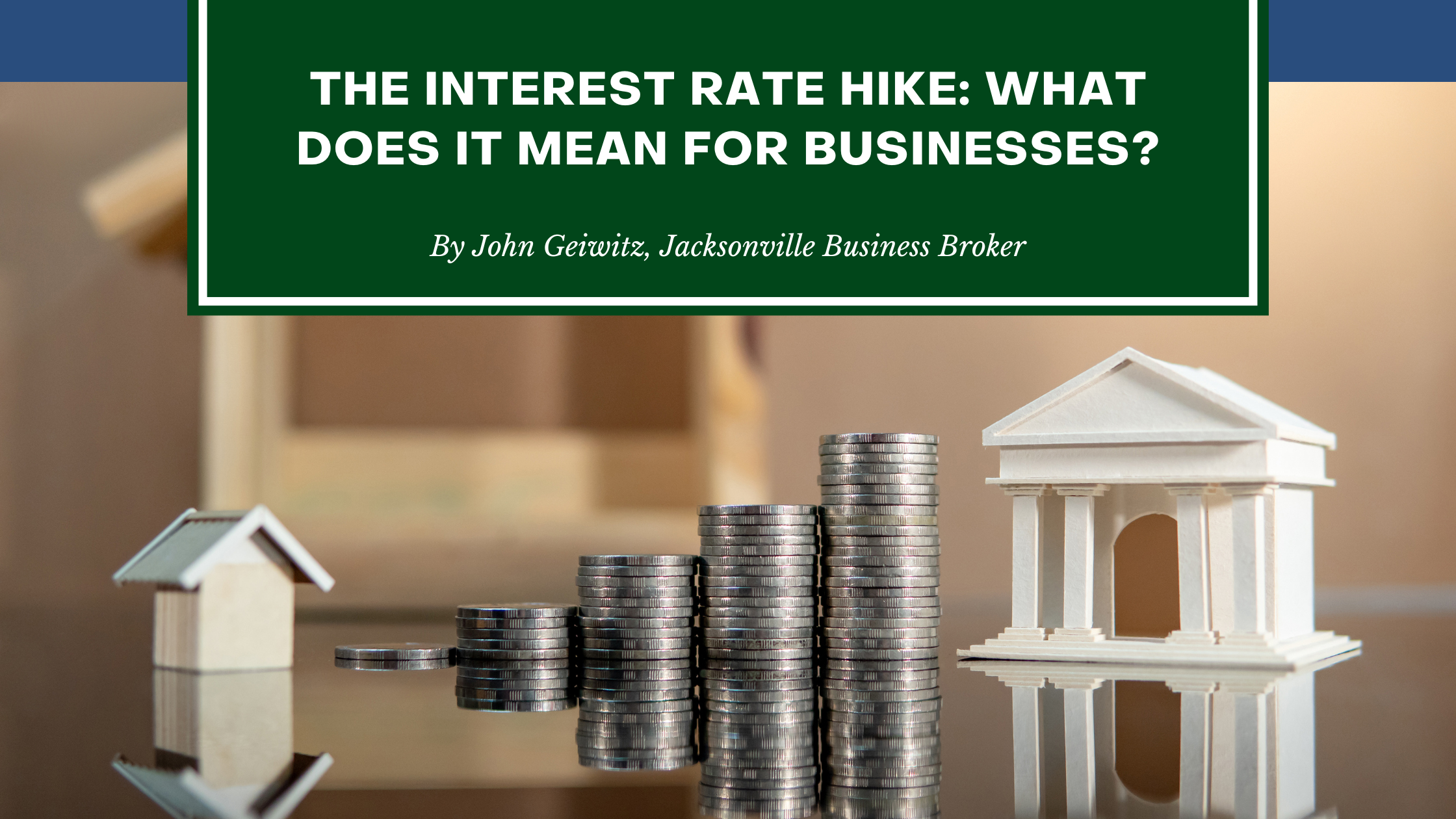
With U.S. inflation running at its highest levels since the early 1980s, the Federal Reserve is making big changes to benchmark interest rates in an effort to turn things around. In a bid to combat the persistently high inflation, the central bank recently announced yet another interest rate hike — its third consecutive 0.75% increase — bringing rates to a range of 3% to 3.25%, the highest they’ve been since the 2008 recession.
While this can seem daunting, it doesn’t have to be. Let us break down what it all means for business owners, as well as those looking to buy or sell a business.
What It Means
In the short term, increasing interest rates hike up borrowing costs. For businesses and consumers alike, this is liable to impact key purchasing and investment decisions. With interest rates on the rise, business owners might see less demand for their goods or services, while the cost of ingredients or supplies may simultaneously increase. This also may impact how business owners and buyers borrow and pay back debt, especially if the interest rate is variable instead of fixed.
Not only that, but the need for business owners to pay back or finance higher loans could exacerbate the worker shortage. Because tens of millions of workers have left the labor force since the onset of the COVID-19 pandemic, businesses are struggling to fill open positions and meet competitive salaries and wages.
What You Can Do
This might sound hard to swallow, but all is not lost. There are some things you can do — whether a business owner, buyer, or seller — to survive in these trying times.
Consider your loans. If possible, avoid drawing down lines of credit or taking out a new business loan. If taking out a loan is absolutely necessary, opt for one that has a fixed rate that won’t fluctuate.
Look at your cash management. Consider your cash conversion cycle — a.k.a. the pace at which money is obtained versus how quickly it is spent. Your banker may be able to offer techniques and tools to improve financial efficiency.
Forecast inventory needs. One way to mitigate inflation and potential supply chain issues is by carrying additional inventory. This can help lock in prices before they increase.
Think beyond worker wages. Retain and attract employees by looking beyond the salary. Emphasize your company’s culture and purpose, and play up any potential social impact that may appeal to talent.
Hire a business broker. If you’re looking to buy or sell a business and are struggling to navigate our country’s constant economic changes, turn to the experts. A trusted business broker can be a wealth of knowledge and is on hand to walk you through the entire buying or selling process from start to finish. They can help identify potential buyers and sellers, aid in marketing, manage offers, oversee contracts and closing, and assist in finding just the right loan when needed.
There is no doubt that raising interest rates are causing buyers to be more hesitant. However, when you work with a seasoned Business Advisor there are many ways to make a deal work and still achieve your ultimate objective as a seller.
It is very important to keep in mind – even with higher interest rates, we are still in a “Sellers’ Market” in Florida. Yes, higher interest rates are making SBA deals harder to get across the finish line but we are still getting a record amount of deals done. We still have more “Cash-Buyers” flocking to the Sunshine State with cash in their pockets and the need to buy a business. Mid-Market investors (i.e. Private Equity and Family Office buyers) are not going to let higher interest rates affect their acquisition style. Bottom line – If you are thinking about selling your business, there are more positives than negatives right now so try not to let the interest rate hikes keep you from exploring your options, call me today and let’s strategize!


